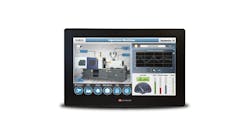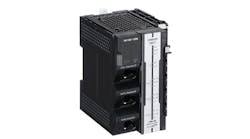| F |
or several years now, we've been seeing a trend that disturbs those in new product development. This is one of the most important areas to our readership, and we want to take this time to point out some things to you. New product development is expensive, whether you are a large company or a small startup. It is money laid out for salaries, fixtures, prototypes, testing, and other expenses that result from bringing a product to market--long before dollar one of revenue is generated.
Over the past thousand years, we've evolved several means of protecting this investment, including patents. Since the 1970s, the U.S. Patent Office, and similar organizations in other nations, have seen massive shifts in what can be patented, including living organisms and software algorithms. Sometimes the examiners have seemed woefully unqualified to determine if one of these algorithms or other software or networking functions are really patentable, and they've permitted patents on some that have been questionable.
Over the past few years, there have been several important intellectual property lawsuits in the process automation market. In the most well known of these, a series of suits people are calling the Solaia cases, instead of suing the manufacturer for patent infringement on a weak patent of dubious value, the patent-owner has been filing lawsuits against the end-users of Rockwell Automation control systems. Solaia, a mysterious company that appears to do nothing but file lawsuits, and whose ownership is confidential, purchased a patent from Schneider that covers transmitting information from a PLC to a spreadsheet over a network. Solaia claims this covers transmitting any information from any PLC to any host computer or DCS. Because they have been suing end-users instead of Rockwell, this means that if you use a Rockwell product that Solaia claims infringes the patent they bought from Schneider, you, not Rockwell, are likely to be the defendant. Does this incline you to buy another system from Rockwell? Solaia clearly hopes not.
Solaia is not alone. Opto-22 just settled a case brought by Schneider because, as they said, they didn't have the resources to pursue it further, and National Instruments has been sued for patent infringement by Softwire. All of these cases involve rather older patents that are being used to control the development and innovation of newer products. We have our opinions on the validity of all these patents, and we believe that the Patent Office is not serving the automation community well by granting these and other patents that arguably never should never have been granted in the first place.
Recently, CONTROL investigated the current status of the Solaia cases, the Opto-22 case, and others. We had hoped to present an updated report to complement the reporting we've done in previous years. None of the principals involved would talk to CONTROL at all, and one of them, off the record, told us that if we even wrote the article, we were likely to be sued by Solaia's attorneys.
It is important to remember that these cases are about what you, as end-users, will be permitted to use in hardware, software, and networking technologies in the future. Do you think that companies of any size are going to continue to spend money on new product development, only to have attack lawyers come after them, after the fact, and with patents of questionable applicability? We are concerned that an increase in this trend may retard innovation for years.
This is not about large companies versus small companies. It is about the dubious use of the intellectual property laws to provide or maintain a competitive advantage. If a company the size of Rockwell can be attacked and their customers intimidated, it can happen to any company, small or large. Rockwell has the capital and the cash flow to resist. A small startup with a good idea does not.
We think that this trend is disturbing. Innovation has been the driving force in process automation for nearly 100 years. Innovation has driven the incredible increases in productivity that process automation has brought to manufacturing, and it would be a shame if it were stifled now.

Leaders relevant to this article:


